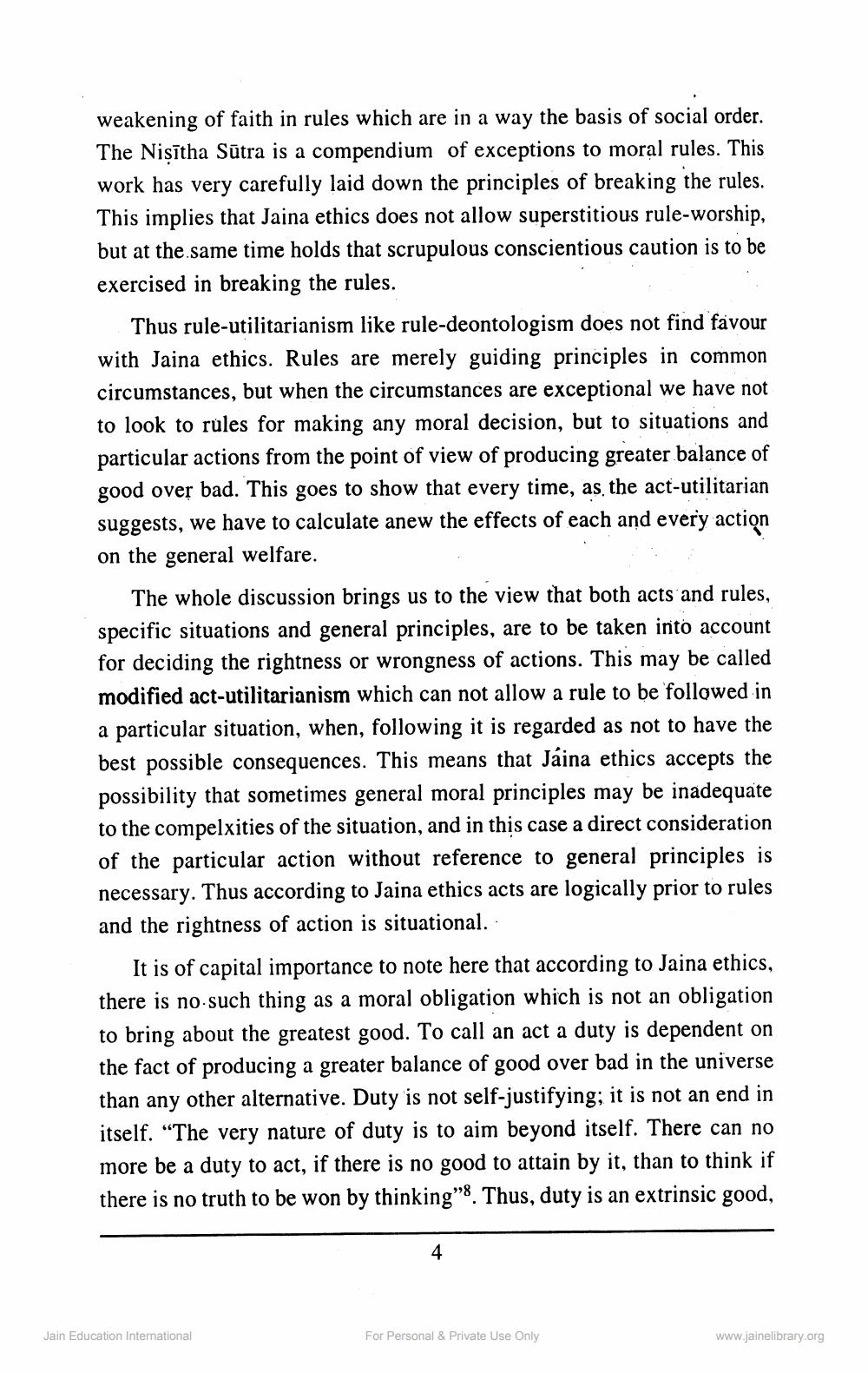Book Title: Right and the Good in Jaina Ethics Author(s): Kamalchand Sogani Publisher: ZZZ Unknown View full book textPage 9
________________ weakening of faith in rules which are in a way the basis of social order. The Nişītha Sūtra is a compendium of exceptions to moral rules. This work has very carefully laid down the principles of breaking the rules. This implies that Jaina ethics does not allow superstitious rule-worship, but at the same time holds that scrupulous conscientious caution is to be exercised in breaking the rules. Thus rule-utilitarianism like rule-deontologism does not find favour with Jaina ethics. Rules are merely guiding principles in common circumstances, but when the circumstances are exceptional we have not to look to rules for making any moral decision, but to situations and particular actions from the point of view of producing greater balance of good over bad. This goes to show that every time, as the act-utilitarian suggests, we have to calculate anew the effects of each and every action on the general welfare. The whole discussion brings us to the view that both acts and rules, specific situations and general principles, are to be taken into account for deciding the rightness or wrongness of actions. This may be called modified act-utilitarianism which can not allow a rule to be followed in a particular situation, when, following it is regarded as not to have the best possible consequences. This means that Jaina ethics accepts the possibility that sometimes general moral principles may be inadequate to the compelxities of the situation, and in this case a direct consideration of the particular action without reference to general principles is necessary. Thus according to Jaina ethics acts are logically prior to rules and the rightness of action is situational. It is of capital importance to note here that according to Jaina ethics, there is no such thing as a moral obligation which is not an obligation to bring about the greatest good. To call an act a duty is dependent on the fact of producing a greater balance of good over bad in the universe than any other alternative. Duty is not self-justifying; it is not an end in itself. “The very nature of duty is to aim beyond itself. There can no more be a duty to act, if there is no good to attain by it, than to think if there is no truth to be won by thinking”. Thus, duty is an extrinsic good, Jain Education International For Personal & Private Use Only www.jainelibrary.orgPage Navigation
1 ... 7 8 9 10 11 12 13 14 15 16 17 18 19 20 21 22
